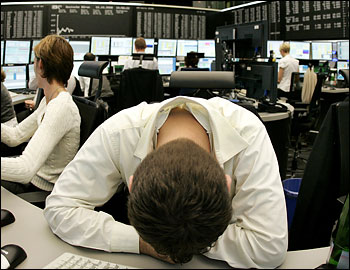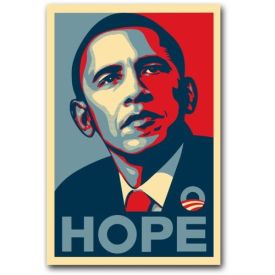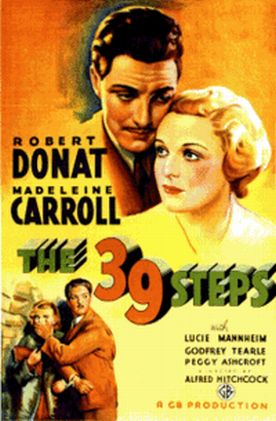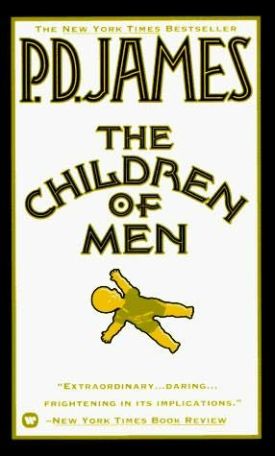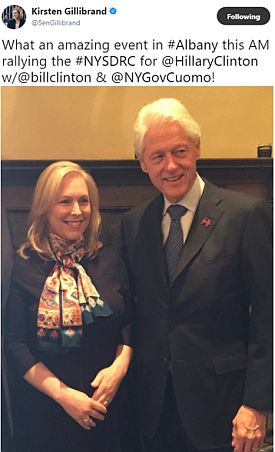Carefully Crafted Narratives
From The New Criterion“All week long, the images screamed financial panic,” wrote Philip Kennicott in one of his trademark thumb-suckers for the Washington Post Style section. “And if it seemed the same ones were appearing over and over again, it’s in part because the media don’t exactly know what they’re looking at yet.” Well, he’s got that right, anyway. From the media’s point of view, at least in the first instance, the worst thing about the financial panic or “meltdown” — a favorite “crisis” word since the 1970s — was that no one knew what the story was. Bad things were happening, but it wasn’t quite clear why they were happening or who could be blamed for them. Who were the good guys and who were the bad? One obvious way to tell the story was in terms of a grimly satisfying comeuppance for the greedy capitalists on Wall Street, and this version got something of a workout. But you could tell that the media’s hearts weren’t really in it — perhaps because the would-be villains were also the most visible of the victims. As Mr Kennicott acknowledged, the anguished broker clutching his brow was the symbol — or, as he portentously (and pretentiously) put it, the “synecdoche” — of the crisis to the media. This is partly, he adds, because so many ordinary people whose retirement accounts are invested in mutual funds are similarly clutching their brows. Everybody with a 401(k) would now have to be numbered among the greedy capitalists.
At the same time, Mr Kennicott wonders if the real import of it all will be a reversion to a story he and many others had thought to have gone out of style, if not to have been entirely forgotten:
Failure on Wall Street may no longer be imputed to collective hubris, or experienced as some kind of abstract hurricane that blows up from time to time. Wall Street may become what it once was: a metaphor not for the whole of America, but for wealth and privilege, in contrast to want and suffering. There is a rich imagery for articulating that understanding, but it hasn’t been seen for decades, and it’s terrifying to imagine its recurrence.
As if to bear him out, his Post colleague Steven Pearlstein was writing on another page on the same day that “the reason we are in this fix is because markets, at least for the moment, are broken and can’t be relied on to allocate capital more wisely than Hank Paulson. A little bit of well-timed, well-crafted socialism is just the thing to save capitalism from itself.” Now where have we heard something like that before? Oh, right. It is the standard liberal talking point about the administration of the sainted Franklin Delano Roosevelt which, as we right-wingers have never succeeded in getting it through our thick skulls, did not introduce socialism into America but rather “saved capitalism.”
Well, the old stories are always the best, I suppose. The day before, the Post had run a front-page “Analysis” piece by Anthony Faiola titled “The End of American Capitalism?” — which, like Beatrice and Sidney Webb’s original title to Soviet Communism: A New Civilization? (1935) seems to have been designed to lose its question mark in the second edition. Certainly, after the government’s $700 billion bailout of the credit markets, followed by a partial nationalization of the major banks, he had a point. Suddenly everyone was reviving the saying attributed to the British liberal statesman, Sir William Harcourt, in Victorian times that “We’re all socialists now.” So it could hardly be surprising if we were using socialist language to tell a socialist story based on the Marxist legend about something called “capitalism” which was once supposed to exist precariously poised between the two historical eras of “feudalism” and “socialism,” one of which hadn’t happened yet but doubtless would in short order.
It seems to me an attractive idea to classify Marx not as a great philosopher or economist — still less, of course, as a prophet — but as a great journalist. For he did what all journalists seek to do, which is to construct a story (or “narrative” as even quite ordinary people are now learning to call it) that accounts for confusing, complex and often unwelcome events in a way that becomes widely accepted not only by his readers but by the readers of his readers and even people who don’t read at all. The enduring nature of his story was obviously owing to the fact that it had clear-cut heroes and villains, that after many a difficulty and setback the heroes were portrayed as triumphing (or bound to triumph) over the villains and that there was a sense of fate or inevitability, even divine guidance — with “History” in the role of God — about this happy ending. Most importantly, it encouraged a mass audience to identify itself with the good guys and their sense of grievance against the bad guys who were few in number and different from them in having lots of money. One of the things that people demand from journalism, now as then, is guidance as to whom to hate.
Oddly, as it might seem, although the revolutionary socialist era never dawned in the industrialized world in quite the way that Marx had predicted, even the people who did not go on believing that it would, some day, continued believing in the wicked and exploitative “system” that socialism was supposed to supersede — perhaps just so that the next time there was a financial panic they would have someone or something, other than the panickers themselves, to blame. More oddly, in my view, those who positively repudiated the Marxist narrative also retained the Marxist language, proclaiming themselves proud capitalists and insisting that the capitalist system must bring about, in fact and for everybody, the workers’ paradise that socialism could only promise. It should have been foreseeable that this would get them into trouble when hard times came along the next time. “You said capitalism ‘worked,’ didn’t you?” the socialist might reasonably ask. “So what have you got to say now?”
Of course, “capitalism” — the socialist word for economic reality — does work, just not to produce the utopian dream of easy abundance for all. That remains a fantasy no matter what the words used to describe it. Instead, it works to produce rewards for the provident and punishments for the improvident, and it is these latter that the new socialist narrative seeks to champion by mitigating their punishment with some proportion of the rewards which have been confiscated from the provident — who have by now become so used to the treatment that they are expected meekly to accept and even welcome it. They have 401(k) accounts too, after all.
Although bits of Marx’s narrative — including all the most important and predictive bits — have since been called into doubt, it cannot but seem remarkable that after more than a century and a half, as the late crisis showed, so much of it remains current, albeit in many local adaptations. In many parts of the world — and in some parts of America itself — America as a nation and a collectivity naturally takes on the role of the wicked capitalists, allowing even fabulously wealthy Arab sheikhs or their scions, such as Osama bin Laden, to assume that of the oppressed and exploited proletariat. This kind of anti-Americanism is now so common in Europe that it has resulted in a Nobel Prize in economics for Paul Krugman, Bush-bashing columnist for The New York Times. But in most of the American media, the classic version is Mr Pearlstein’s, derived from FDR’s, in which the capitalists are divided into the good and the bad kind, the “malefactors of great wealth” and Republicans on the one hand and the enlightened upper-class champions of “the people” like FDR himself on the other.
The latter have been saving the ungrateful former from the consequences of their own greed with homeopathic doses of socialism for three generations now, at least according to the American media’s master narrative, so of course the current difficulties in the credit markets slotted right into it — apart from the small but not unimportant detail that the enlightened prince destined to save the people and the good capitalists from the rampaging bad capitalists had not — yet — been elected. Of course he was on the way. Very much so, in fact. Barack Obama was clearly nature’s and multiculturalism’s version of the aristocratic JFK, whom the media saw as the second iteration of FDR and the prototype of all his other successors and would-be successors for nearly half a century. To many in the media, Senator Obama seemed already president in all but name, so it must have seemed monstrously unfair to the devotees of the old story that, four months too soon, the face of capitalism’s savior appeared on the scene in the improbable guise of that well-established villain, George W. Bush.
That’s why it was understandable that even in the act of ratifying the President’s massive bailout package, Speaker of the House Nancy Pelosi, could not forbear to blame the Bush administration itself, seemingly seen by the vast majority of the Democratic party as the fons et origo of all the evil and misfortune in the world, for the fact that there had had to be a bailout in the first place. For one brief glorious moment it almost seemed as if this inopportune reiteration of the Democrats’ and the media’s stock narrative of Bush administration bungling, stupidity or malignity would cause the measure to go down to defeat. But the Republican rebels, perhaps shamed by David Brooks’s calling them “nihilists” in the pages of The New York Times, swiftly fell back into line. Yet how should they have held out against it when even John McCain seemingly bought into the dominant media narrative — including, most remarkably, the part of it which attributed the market’s big sell-off to Republican “deregulation”? For when, in one of their “debates,” Senator Obama attempted to inculpate Senator McCain, along with other Republicans, for this supposed deregulation, the latter had nothing to say in his own defense.
It’s not as if he had nothing to say. Along with some Republican co-sponsors, he had introduced a bill in 2005 to increase the regulatory oversight of Fannie Mae and Freddie Mac, the two worst offenders in the generation of the toxic debt that had caused the banking crisis, which had in turn caused the stock sell-off. And what had happened to this bill? It was defeated not by those wicked, regulation-hating, laissez-faire Republicans but by Democrats, including Barack Obama who depended on the well-organized political action committees of the two agencies in defiance of the most elementary sense of equity or ethics, to funnel large amounts of money in the form of campaign contributions to themselves. Perhaps Senator McCain simply forgot about this episode from three years ago. He is getting on a bit, they say.
More likely, he saw the hopelessness of changing the widely accepted media narrative as it was taking shape in the closing weeks of the general election campaign and which was repeating at every opportunity, along with Senator Obama and the Democrats, some variation on the theme that, as Jonathan Chait put it in The New Republic, “Republican governance has brought orgies of deregulation.” Mr Chait would have been hard put to it to come up with any examples of deregulation from the last eight years, if he had attempted to do so, but of course “Republican governance” could include anything up to and including Herbert Hoover that could be made to fit the media’s template — which was also, not coincidentally, that of the Democratic narrative in the election campaign. This portrayed an irresponsible president and Republican party, drunk on power and wedded for doctrinal reasons to their blind belief in a dangerously wild and uncontrollable laissez-faire capitalism, which had indulged themselves for eight years in an orgy of “deregulation” issuing in the present crisis.
In fact, the Republican governance of the second Bush era began with the bankruptcy of Enron and was in many ways defined by the bipartisan regulatory overkill of the Sarbanes-Oxley Act of 2002, which was enacted in response to the last occasion when the media had demanded that “speculators” and others they represented as belonging to the bad variety of capitalists should be given exemplary punishments and subjected to increased government monitoring. In the latest crisis, everything that had gone most egregiously wrong was subject to regulation, yet it went wrong anyway; and things, like hedge funds, that were not subject to regulation did not go wrong. As Sebastian Mallaby, a lonely voice of reason, put it in The Washington Post, “the key financiers were the ones who bought the toxic mortgage products. If they hadn’t been willing to buy snake oil, nobody would have been peddling it. Who were the purchasers? They were by no means unregulated. U.S. investment banks, regulated by the Securities and Exchange Commission, bought piles of toxic waste. U.S. commercial banks, regulated by several agencies, including the Fed, also devoured large quantities.”
The worst offenders, the Enrons of this phase of the business cycle, were Fannie Mae and Freddie Mac which, according to Charles Calomiris of Columbia University, “bought more than a third of the $3 trillion in junk mortgages created during the bubble and . . . did so because heavy government oversight obliged them to push money toward marginal home purchasers” — which obligation, he might have added, had in turn been pushed on the government by “community organizers” like Barack Obama. “Regulation,” not for the first time, became a euphemism for governmental self-dealing while the legislature which had created these agencies in the first place neglected its own clear duty to provide effective regulatory oversight of those they had thus given privileged positions in the mortgage marketplace. “So,” as Mr Mallaby writes, “blaming deregulation for the financial mess is misguided. But it is dangerous, too, because one of the big challenges for the next president will be to defend markets against the inevitable backlash that follows this crisis.” Good luck with that!
For this part of the story just doesn’t fit very well with the tale the media has had to tell ever since FDR. That’s how even the regulation-happy populist John McCain was said by David Alpern, editor of Newsweek, echoing Senator Obama, to be “associated” with this mythical bugbear of deregulation. Also contributing to the all but irresistible magnetic force of the media and Democratic narrative has been the toxic levels of anti-Bush feeling in those precincts over the past eight years, which had already created a disaster narrative of the Bush administration — loosely based, insofar as such things are ever based on anything, on the missing Weapons of Mass Destruction in Iraq and Hurricane Katrina — well before there was a disaster. This is the habit of mind which cries, in the words of an Associated Press headline of last June, relentlessly mocked ever since by James Taranto of The Wall Street Journal, “Everything is seemingly spinning out of control.”
Perhaps it should not be wondered at, then, that things really did seem to be spinning out of control three months later, or that the President should have had to bear the blame, as he does for so much else. It’s come to something when normally so astute an observer as James Wolcott can write that “I blame Bush for everything and will continue to blame him (and Vice President Dick Cheney) for everything long after we’re all dead of gas gangrene,” and careful readers are reduced to wondering if he might — particularly as his jeu d’esprit appeared in the pages of Vanity Fair — just conceivably be serious.
Both these two media narratives have obviously served Barack Obama well in the wake of the crisis and made it seem more likely than ever (at the time of writing) that he must succeed to the patrimony with which the media have long been eager to endow him. His story thus became — or at least was on the way to becoming — the latest redaction of the story first formulated by Karl Marx and subsequently adapted and further refined by Franklin Roosevelt and three generations of journalists and Democrats — but I repeat myself — who came after him. Senator Obama’s election began to look as inevitable as the dictatorship of the proletariat or the withering away of the state. All good news, you might think, for the media consensus, and yet the media themselves seemed out of sorts: querulous and snappish and annoyed out of all proportion when someone like Sarah Palin came along to threaten a change in the story they have so carefully crafted. Here’s how Sam Schulman, in a brilliant article in The Weekly Standard explains this ill-temper:
The man to blame for the media’s misery — and by extension, everyone’s — is Evan Cornog, the associate dean of the Columbia Journalism School, a friend and a fine historian. In 2004, he published a book called The Power and the Story. It was a guileless act with dreadful consequences. Cornog’s subtitle reveals all: “How the Crafted Presidential Narrative Has Determined Political Success from George Washington to George W. Bush.” . . . Cornog, innocently, thought candidates and campaign strategists crafted the presidential narrative. Journalists misunderstood. They believe their job is to construct the presidential narrative themselves. So instead of journalism — even biased, self-blinded, incompetent, selective reporting and ill-informed, self-interested commentary — the media, from top to bottom, craft narratives. Nearly anonymous wire service cubs do narratives. Syndicated columnists, glamorous and grizzled alike, do narratives. Gwen Ifill narrates first and moderates actual debates later.
Of course, crafting narratives is at least two or three steps up the status-ladder from merely reporting the news. But if the journalist’s self-conceit as artist and poet must be satisfying in one way, his vulnerability, and that of his carefully crafted narrative, to mere events must produce at least an equal amount of dissatisfaction. As Mr Schulman notes,
In the campaign that takes place in real life, not narrative, new facts emerge constantly. New facts the press once upon a time called “news,” which sold newspapers and grew audiences. Now, so invested are journalists in narratives that new facts and new personalities make them anxious and unhappy, instead of eager and interesting. And that anxiety they communicate to us — fewer and fewer of us — daily. The news industry, which has thrived for centuries as a chorus reporting what it sees, now has seized the author’s job and invents the plot. No wonder the audience for newspapers and television news has been dwindling so quickly.
It’s enough to give new heart to those of us who will not be inclined to welcome the now seemingly inevitable Obama victory. At least the tired old story-line about the misadventures of American “capitalism” will at last have to change. Won’t it?
Discover more from James Bowman
Subscribe to get the latest posts to your email.

